The #1 Reason We All Need to Eat More Gelatin
This post may contain affiliate links, including those from Amazon.com, which means we earn a small commission off your purchases. And here's the thing: We only mention services and products that we think are truly worth your attention, whether they're free, paid, or otherwise. This site relies on YOUR trust, so if we don't stand behind a product 110%, it's not mentioned. Period.
I used to laugh at the fact that hospitals feed Jello to patients post-surgery. “It's not even food!” I thought. “What's the point?”
But despite the fact that commercial brand Jello and its counterparts are mostly food dye and low-grade gelatin, there IS a point – and it's an important one.
Gelatin encourages and supports truly nourished, good health, provides protein, and is very easy to digest, even helping to calm ulcers and heal the lining of the small intestine.
While that may all be well and good for post-operative inpatients, the fact is that gelatin is an essential part of a healthy diet for ALL of us.
First of all, what IS gelatin?
Gelatin is basically cooked collagen. Collagen exists in the bones, hides, and connective tissues of many animals, as well as humans. This is note-worthy, as collagen makes up almost one-third of all the protein in the human body and is responsible for everything from how many wrinkles we have to whether or not we have stiff joints after sitting too long.
Collagen is a fibrous protein that strengthens the body’s connective tissues, allowing them to be elastic so they can stretch without breaking. As we get older, our bodies makes less collagen. By ingesting gelatin, however, we give our bodies new stepping stones with which to build more collagen.
Gelatin also contains 18 amino acids. Many of these amino acids are “essential,” meaning they can’t be produced by our bodies and must be acquired as part of our diet.
It's also important to note that gelatin comes from the bones, hides, or connective tissues of animals, not the hooves, as some proport – that's keratin, not collagen.
And lastly, as with so many other foods, it's important to source your gelatin carefully. Most of the gelatin powders we find on the market are made from the hides of feedlot pigs and are created at a very high temperature, which can turn the gelatin acidic and bitter. (I remember one batch of marshmallows I made that smelled like death itself and I finally realized the culprit was the gelatin. Gack.)
However, if you can source grass-fed, 100% beef gelatin that is processed at the lowest temperature possible (like this one), the vitamin and mineral content will be much higher, as well as your ethical conscience may be assuaged. (These options are also labeled as Kosher, as porcine gelatins aren't approved within Jewish dietary law.)
My Recommendations for Quality Gelatin
The best gelatin comes from good ol' homemade bone broth. This gelatin is the most bio-available and it's definitely the cheapest way to get enough gelatin in your diet. Bone broth is extremely easy to make, but if you're like me, you either lack time, patience, or ingredients to make a pot every day. And the usual store-bought stuff, even the organic kinds without fillers and additives, won't come close to providing what you need. The only way to get gelatin in bone broth is to slow simmer it for hours or even days, depending on the type of bones.
So, if you don't want to make your own homemade broth, you can buy gelatin powders. Great Lakes gelatin and Bernard Jensen gelatin are both excellent. This one is 100% beef like the others, but I haven't been able to verify its source or the method of its processing.
To my knowledge, none of these are available outside of the United States, so buying online may be the only option.
(If you live outside the US and know of a source of grass-fed beef gelatin, PLEASE leave a comment below telling us all about it!)
Benefits of Gelatin
Now for the fun stuff…. in no particular order. 🙂 (Do you geek out about this as much as I do??? Seriously. I know I'm not the only one whose mind is blown. 🙂 )
By the way, these are just some of the long list of benefits researchers are continuing to discover. If you'd like a starting point for some really fascinating research, check out the list of research sources below.
Health Benefits
1. Gelatin protects your joints during exercise and helps you heal afterward.
2. Gelatin provides the amino acid, glycine, which assists the liver in ridding toxins from your body.
3. Gelatin helps heal and seal the colon so that nutrients may be absorbed.
4. Gelatin helps food gel within the stomach for more consistent digestion.
5. Gelatin reduces heartburn, ulcers, and acid reflux by binding acids with the foods.
6. Gelatin aids digestion by keeping the gastric mucosa in excellent condition.
7. Gelatin as it is found in bone broth is a hydrophilic (“water loving”) colloid. Thus, it attracts and holds liquids, including digestive juices and liquids in the food, thereby supporting proper digestion and good intestinal transit of food wastes.
8. Gelatin provides a tremendously high percentage of protein and minerals per gram, which is certainly a boon for most growing children and pregnant women!
9. Gelatin balances out your meat intake. This is one of the aspects of gelatin I find MOST fascinating! Muscle meats, which comprise the vast majority of our meat intake, contain elevated levels of the amino acids cysteine and tryptophan, which can be inflammatory over time. Gelatin, however, contains no cysteine or tryptophan and elevated levels of glycine and proline, two anti-inflammatory amino acids, thus balancing, completing, and complementing the other meat sources.
10. Gelatin supports optimal immune function.
11. Gelatin can help regulate excess body fat when excess fat is present and maintain healthy weight when muscle and fat are in proper balance.
12. There is preliminary evidence that gelatin can keep cancer cells from reproducing. Interestingly enough, one study I read to this effect found that porcine gelatin had a noticeably greater effect than beef gelatin. The study did not indicate the source or methods of processing of each type of gelatin tested.
13. Gelatin, especially when consumed as bone broth, can regulate hormones and elevate mood to help balance feelings of depression.
14. Gelatin can help maximize the sensation of satiety (feeling full) between meals, thus reducing snacking.
15. Gelatin can increase cognitive performance, assisting in memory recall and the ability to learn and remember new information.
Beauty Benefits
16. A diet rich in gelatin may protect against the aging effects of sunlight, preventing wrinkles in the future.
17. Gelatin smooths wrinkles by providing ample building blocks for the body to make collagen. Score!
18. Gelatin can be used as hair gel. In fact, rumor has it that gelatin is sometimes used by synchronized swimmers to hold their hair in place during their routines, as it will not dissolve in the cold water of the pool.
19. Gelatin can have a beneficial therapeutic effect on hair loss in both men and women.
20. Gelatin can help make fingernails stronger and grow faster.
21. Gelatin can help hair stay shiny and strong long-term.
22. Gelatin, due to the presence of glycine, can act as a natural sleep aid.
And the #1 reason we should all eat more gelatin….
Gelatin makes us feel good!
23. Gelatin has a quieting, protective, anti-stress effect. Some people feel it quickly, others feel it after several months, and some report that it's just a general, underlying sense of contentment. A healthy dose of gelatin in our daily diet can calm us, balance our hormones (especially if we've been eating muscle meats), and just generally provide a sense of well-being.
Side note: How appropriate is it that on a site named NOURISHING JOY, the #1 reason to eat more gelatin is that it makes us feel good – mentally, emotionally, and physically?!? Ironically, I didn't set out to write this article with that in mind. I intended that the #1 reason would be the balance of amino acids in our diet, but as I read through the research, the sense of well-being kept coming to the fore over and over. I love it when we have something in mind, but good reading through evidence-based research reminds us of a bigger picture.
So, what are you waiting for? Grab some Kosher, grass-fed, 100% beef gelatin today and get happy! 🙂
Research Sources and Further Reading
Interested in knowing more about gelatin? Check out these sources to get you started.
“Gelatin, Stress, and Longevity,” Dr. Ray Peat
“Hydrophilic Colloid Diet,” Dr. F.M. Pottenger
“Research Reveals Little Calcium in Bone Broth,” Kaayla T. Daniel, PhD, CCN
“Why Broth is Beautiful: Essential Roles for Proline, Glycine and Gelatin,” by Kaayla T. Daniel, PhD, CCN
Gelatin in Nutrition and Medicine, Nathan R. Gotthoffer
Gut and Psychology Syndrome, Dr. Natasha Campbell-McBride
“Bone Broth—One of Your Most Healing Diet Staples,” Dr. Joseph Mercola
“Gelatin: A Healthy Protein Powder,” Kristen Michaelis, aka The Food Renegade
“5 Reasons Why Even Vegetarians Should Eat Gelatin,” Laura Schoenfeld, RD
Meet Your Meat (video), Denise Minger
“The Crucial Reason You Need More Gelatin in Your Diet,” Sarah Pope
“Balance Hormones with Collagen Hydrolysate and Gelatin,” Lauren Geertsen
“Oral ingestion of a hydrolyzed gelatin meal in subjects with normal weight and in obese patients: Postprandial effect on circulating gut peptides, glucose and insulin,” Rubio IG, Castro G, Zanini AC, Medeiros-Neto G.
“Ingestion of gelatin has differential effect on bone mineral density and body weight in protein undernutrition,” Koyama Y, Hirota A, Mori H, Takahara H, Kuwaba K, Kusubata M, Matsubara Y, Kasugai S, Itoh M, Irie S.
“Effect of gelatins on human cancer cells in vitro,” Kojima T, Koide T, Nagata H, Inamura Y, Sano M, Ito N, Suzumura K, Hasegawa M.
“Anti-tumor and anti-metastatic effects of gelatin-doxorubicin and PEGylated gelatin-doxorubicin nanoparticles in SCC7 bearing mice,” Lee GY, Park K, Nam JH, Kim SY, Byun Y.
“Oral intake of specific bioactive collagen peptides reduces skin wrinkles and increases dermal matrix synthesis,” Proksch E, Schunck M, Zague V, Segger D, Degwert J, Oesser S.
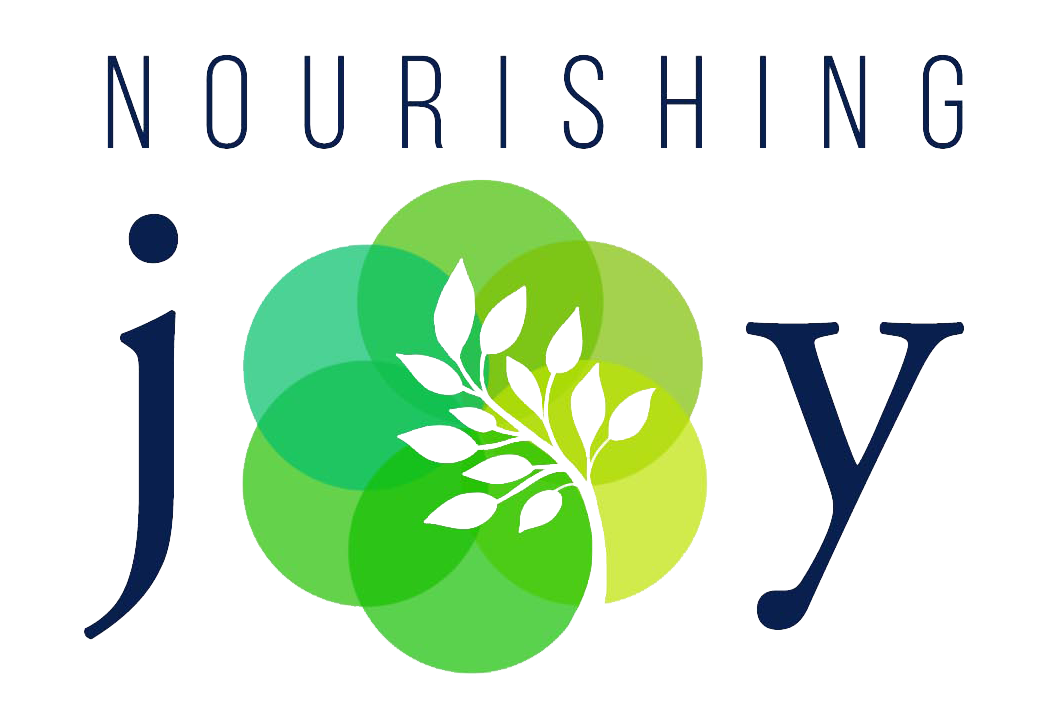
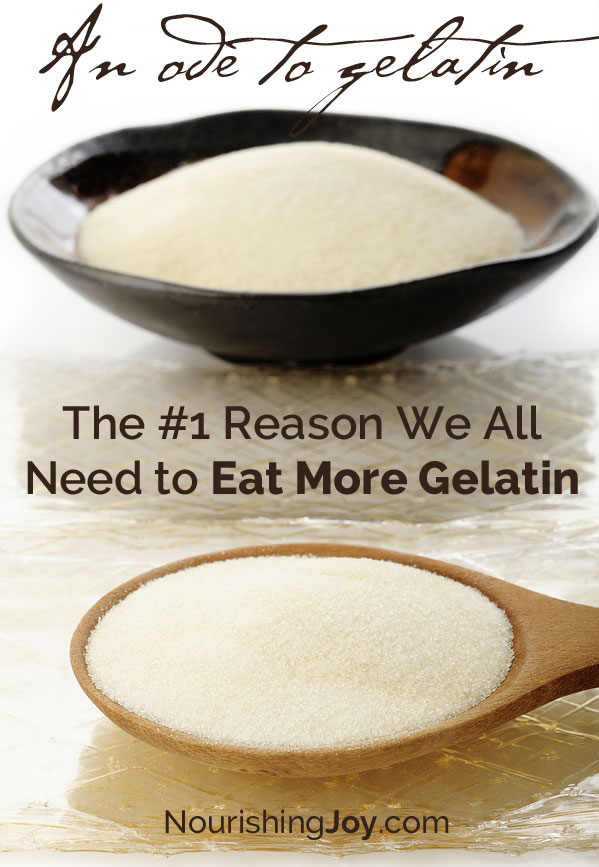

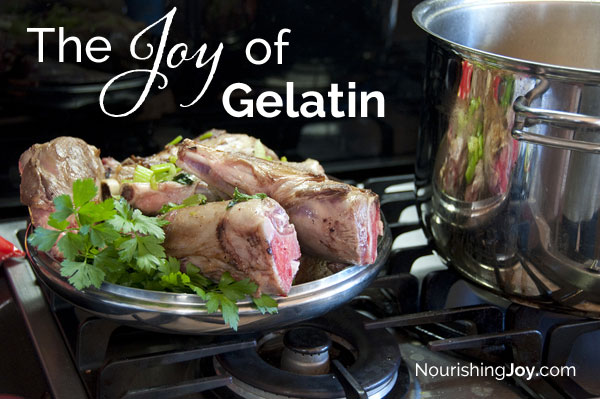

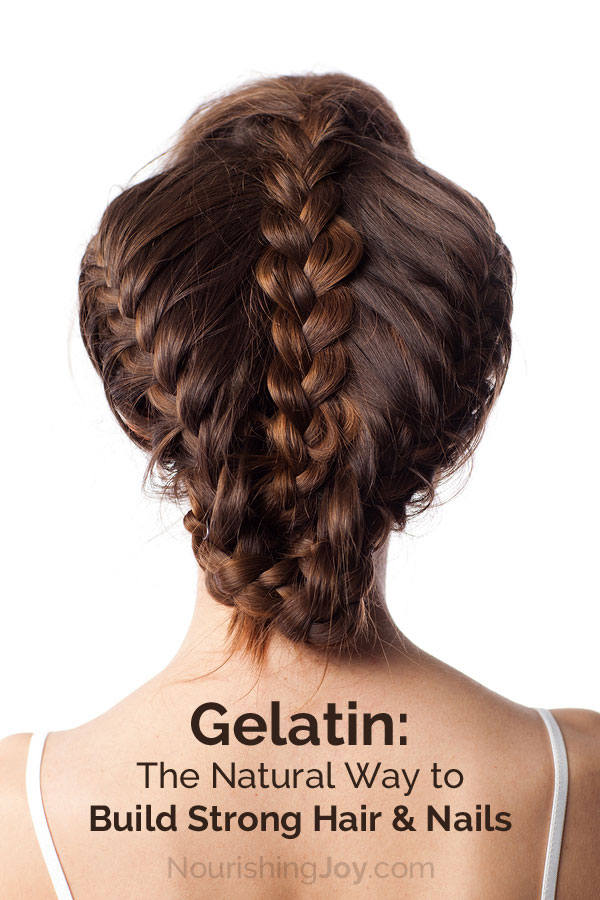
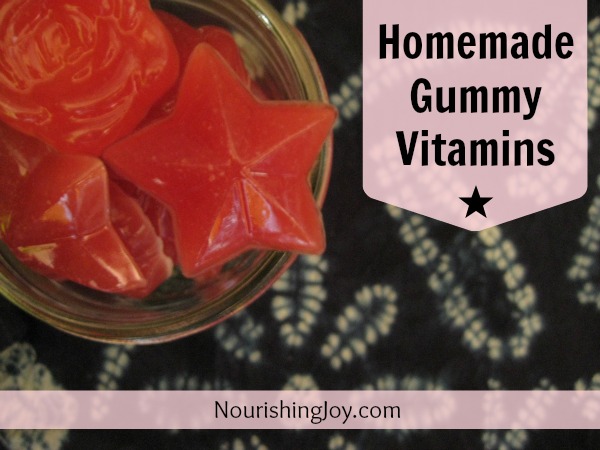


I have the great lakes brand, but how do I use it?
I put a tablespoon everyday in my morning coffee I use the Great Lakes Bovine Collagen
LOVE this post and will definitely be sharing it! xo
Thanks, Kelly! 🙂
Very good and interesting information. I actually have some Great Lakes Gelatin in my pantry, however, I struggle with what to use it in and how to incorporate it into my diet. Ideas and suggestions are very much appreciated!
I appreciate this information as it is extremely timely! I’ve been looking at the benefits of gelatin for several of my extended family members, as well as my own family. My main question is how to use it…besides in soups. (We live in west Texas & it is way too hot to want soup!) Does it have a taste? And, how much do you need daily to really be beneficial? Thanks again for the info!
Jennifer,
I just added a link to the article above with a whole bunch of ideas on how to eat more gelatin without just adding it to soups and such. I hope you find some of them useful!
Even just 1-2 tablespoons daily can have a beneficial effect, to my knowledge, so just adding it to various foods and drinks will add up.
And as for taste, yes, it has a taste if it has sat for awhile, especially if it’s been sitting in a humid place (like anywhere in the South or in my basement suite – heh). But I rarely notice a flavor on a fresh package – meaning, it’s been processed and packaged just in the last few months. (Others may disagree. Some say it always has a taste.) However, it’s almost always used with highly flavored items, such as fruit juice, soups, smoothies, marshmallows, panna cotta, etc – so the flavor is usually completely unnoticeable.
I hope that helps!
OMG! I think I need to go eat some gelatin right now! Great article Kresha!
xoxo,
Robin
Here is another resource for an excellent gelatin made from sea vegetables – ChillOver Powder from MaryJanes Farm!
http://www.maryjanesfarm.org/ChillOver/recipes.asp
Oh, I love MaryJane’s Farm! Thanks for the link! For anyone looking for a non-animal gelling agent, I’ll definitely be recommending this one – I’ve been looking for a decent source. 🙂
I should note, however, that since this is plant-based rather than animal-based, it won’t offer the systemic benefits of gelatin listed above, although I have run across one study that suggested that agar-agar (which this one is) might have colon-healing properties.
Thanks again, Julie! 🙂
I’ve been putting 2 tablespoons of gelatin into 8 ounces (1 cup) of raw milk, (plus whatever flavoring I want: cocoa powder and a dash of maple syrup, or maple syrup all by itself, or 2 tablespoons of sucanat, etc.) and run it through the blender on puree for a minute or two. It’s liquid when I pour it out, but it gets thick quickly and I finish it with a spoon — sort of the texture of cream of wheat. I fall asleep easily and have fewer aches and pains through the night or in the morning.
Question what is the difference in the red & green containers on the gelatin??? I have the green great lakes & wonder if it can be used.
Good article. I first learned about this from the book, “Sip Away Your Wrinkles.” I’m a man in my 60s, and I think it has made a definite difference in appearance. I get comments from people who are surprised when they learn my age.
Sarah Wilson sells gelatin in australia in 500gr packs. Thinking of buying some.
I’ve heard good things! 🙂
Just looked on amazon.fr, who have the Great Lakes brand gelatin for sale as an import item from the UK. A bit pricey, but the same product.
Dear Kresha!… “The Joy of The Lord is your Strength!”… You are certainly a Lovely Lady through CHRIST JESUS! Thank You for Sharing and Caring! Godly Good! Paula King.
Can’t Gelatin be bought at the grocery store? I know ordering bone broth is so very expensive. My Grandmother always ate it from the Grocery store and had great skin, nails and hair.
Definitely. Any grocery store will carry it. Some have it in granules, some have it in sheets, some have granules in bulk…. 🙂
However, the ones I link to here are grass-fed bovine gelatin rather than porcine gelatin from pigs in confinement operations – but really, gelatin is gelatin and no matter what kind you use, your body will benefit. The purpose for purchasing bovine gelatin is for the care of the animals during their life, the environmental impact of the animal operation, the type of processing it goes through, and the quality of the final gelatin.
Can you please stop comments being e-mailed to me.
Thanks
Kathleen Quinlan
Vegans live without recourse to exploitation of animals on the planet.. There have to be alternatives to gelatin from animals but you make no mention of compassion being a motive in people’s food choices, yet our conscience determines our actions. We do after all, share the planet with the animals we seemingly treat with such little regard.
This is exactly why we talk SO much here about ethical treatment of animals, including how they are slaughtered. I understand there may be a vast chasm of difference between what we each consider to be “ethical,” but please know there that even among those who eat meat, conscience does indeed determine our action as well. While I do not share your belief (and have consciously chosen to NOT be vegan), I do certainly appreciate your mindfulness.
Could you please let us know what Vegan choices there are to gelatine from animals? This way readers can make an informed decision.
I think there’s a list farther up in the comments, but off the top of my head, the best vegan gelling agent is the ChillOver powder sold by MaryJane’s Farm – you can see it here: http://shop.maryjanesfarm.org/ChillOver.
Other than that, agar, a sea vegetable-derived gelling agent, works well and is commonly found.
I hope that helps! 🙂
I wasn’t a fan of this gelatin at first, I was thinking it’s fat. But when I started drinking Au Bon Broth, I realized how it helped me improve my health. I am honestly more energetic now and I actually look a lot less stressed.
Can i use regular jello will this help?
Well, yes and no. Regular Jello-brand gelatin is indeed made from gelatin, but it’s usually porcine (from pigs) raised in feedlots and created at high-temperature, which means it ends up not as beneficial in your gut. It IS gelatin though, so that’s the “yes.” 🙂
However, there are also lots of other artificial colors and additives in regular Jello to give it its crazy colors and flavors. Depending on your gut, those can be irritating to your colon, so it might be no big deal for your body or it may be a kind of a one-two punch that’s partially beneficial and partially irritating.
So, it’s up to you. 🙂
In Australia there is a company called NesProteins – The Aussie Gelatin Company which produces Grass Fed Beef Gelatin, collagen products and bone broth powder. You can buy products online at https://theaussiegelatincompany.com/